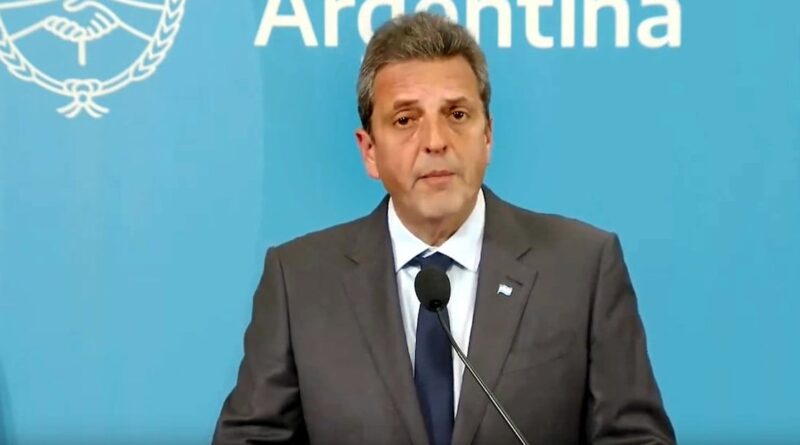Record dollar, high inflation and negative reserves: Masha’s year in the economy
“I’m not a super nothing, neither a magician nor a savior. I come to work in a very dedicated way, to try to help Argentina do well and Argentinians better.” On 3 August 2022, after officially assuming his duties as Minister of Economy (or “minister”), Sergio Massa promised fiscal order, lower subsidies and a US$7 billion increase in reserves. All in line with the goals agreed with the IMF.
Exactly one year ago, Massa left the presidency of the House to take the position left vacant by Martín Guzmán and Silvina Batakis, “in the midst of a monetary march, with alternative dollars released and with 7% inflation“reminds Elisabeth Bacigalupo, from Abeceb. In the annual balance, the numbers do not favor him, but the economist recognizes him as a great achievement: “Avoid a macroeconomic crisis and stabilize amid volatility”.
According to Abeceb, in these 12 months, Annual inflation fell from 78% to 115.6%; Net reserves fell from US$2,227 million (positive) to a red of US$8,207 million (not including the latest payment to the IMF). and economic activity, which in Q3 2022 grew by 5.7%, now shrinks by 5.5%.
In fiscal matters, another Eco Go report points out, achieved a fall, between August 2022 and June 2023 (latest official data), the deficit fell from 3.3% to 2.4%, mainly due to the fall in financial subsidies (3% to 2.5%). Mainly due to the adjustment of service and transport prices. The most visible (and sensitive) is the value of blue. So far in Massa’s tenure, the informal dollar has jumped from $291.00 to $560.
Sebastián Menescaldi, deputy director of Eco Go, recalls that from the beginning Massa “promised 4 pillars to support the government: accumulation of reserves, fiscal control, maintenance of family income and retargeting of social plans”. The economist argues that “these policies were murky and larger macroeconomic imbalances accumulated than were inherited“.
To take over, the minister – now the presidential candidate of Unión por la Patria – claimed broad powers to stabilize the economy. Thus he managed to appoint several of his bishops to key positions, such as Matías Tombolini in the Secretariat of Commerce. The official also continued to control Foreign Trade, the office responsible for approving imports.
By unifying these two schools, Tombolini strengthened price controls, first in core basket products and later in many categories including apparel, footwear and electronics. Under the terms of the agreements, it offered companies, in return for capping increases, priority importation of inputs and capital goods and access to dollars from Central reserves. The program was renamed Precios Justos.
Inflation accelerated as well, despite all efforts. The record low it achieved was in November last year: 4.9%. This led him to promise that the index would drop 1 point every 75 days. And he assumed that at this rate, April data would start with 3. The cost of living that month was 8.4%, the highest in Massa’s administration.
There is another worrying aspect. Also a year ago, according to a study by Econviews, a large part of the market, especially imported products, observation based on financial dollars (CCL or MEP) or blue. Some items even saw increases above the official exchange rate of almost 60%. The price gap with the official exchange rate started in Juneshortly before Guzmán’s resignation.
“Overall, the positive is that Massa avoided an institutional shortcut. never had an economic program or an anti-inflation planAnalytica’s director Ricardo Delgado analyzes. The economist acknowledges that he “had to endure the drought”, but emphasizes that “economic activity, across the board, increased by just 1% and gross international reserves fell by almost 40% . Those are the cold numbers,” he concluded.
An Eco Go report provides further assurance. In terms of international trade and as a result of the drought, from August 3, 2022 to the same month this year, exports decreased by 11.3% (US$9,918 million less imported) while imports barely moved (-542 million) .
Massa also failed to deliver on a promise to recover the revenue. Against accumulated inflation of 115.6%, the average salary increased by 108.7% and pensions and social benefits by 89%. The only thing that recovered was the minimum wage, which climbed 131.7%.
#Record #dollar #high #inflation #negative #reserves #Mashas #year #economy
